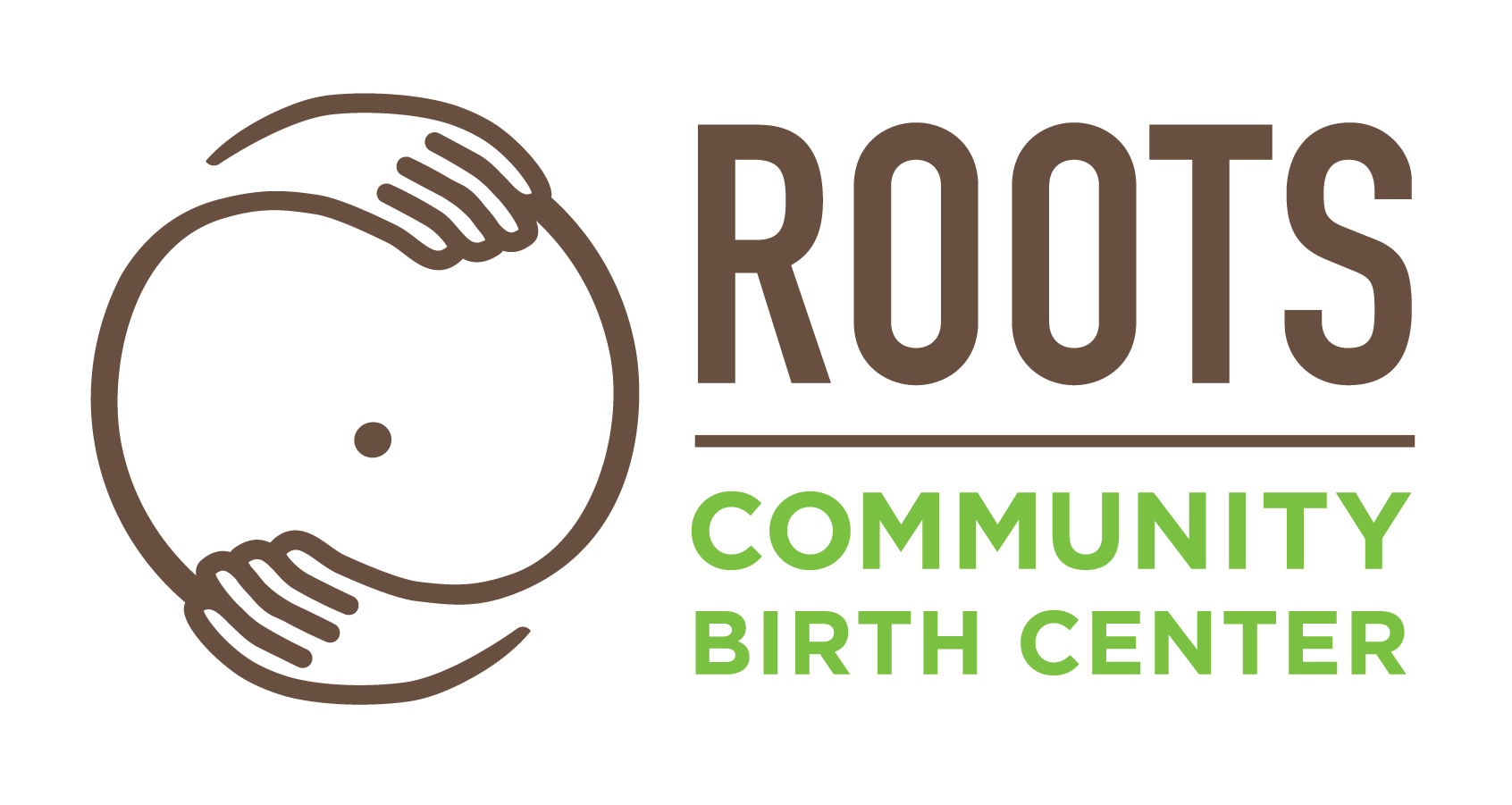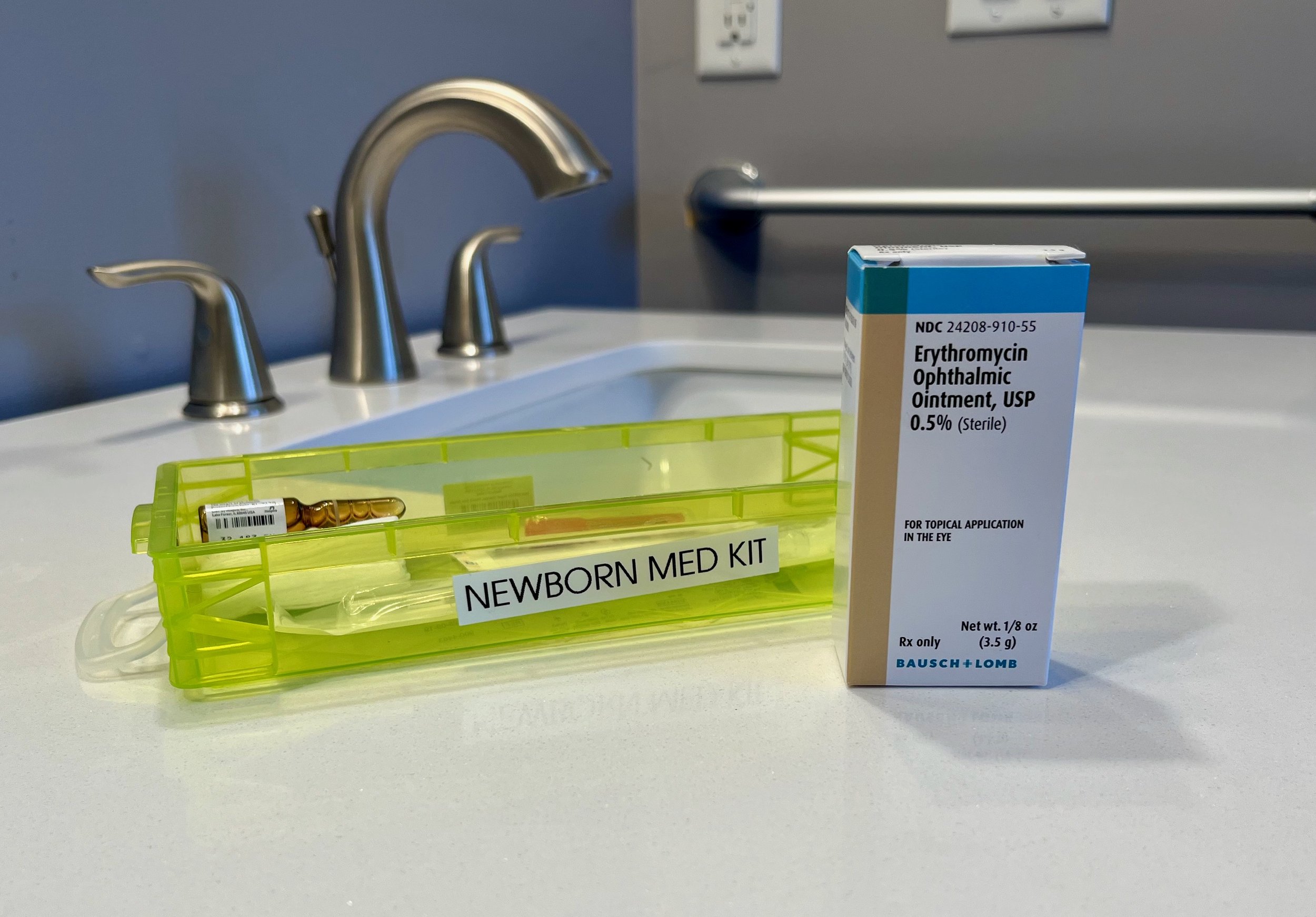Baby Care Decisions: Making the Best Choices for Your Newborn
When you’re pregnant, you’ll probably spend a lot of time reading about and preparing for labor. This research is important and will help you determine your preferences for childbirth and postpartum.
Soon after your baby is born, though, we’ll conduct a newborn exam, and that’s the beginning of making decisions related to their care. Just as you educate yourself about your choices during labor, birth, and the immediate postpartum, it’s crucial to learn about the decisions you’ll be making for your baby, too. These include erythromycin eye ointment, the Vitamin K injection, ongoing wellness, and pediatric vaccines.
As with all of your care at Roots, we are happy to discuss the benefits and risks of baby care decisions, and we leave it to you to make an informed choice. In this blog, we’ll give you some of the basics regarding routine newborn care. By the end, we hope you’ll feel empowered to make educated, autonomous choices for your little one.
Erythromycin Eye Ointment
Erythromycin ophthalmic ointment prevents pink eye, also called ophthalmia neonatorum (ON), which data shows causes blindness in 3 percent of affected newborns. Chlamydia, a sexually transmitted infection (STI), is the most common cause of ON. Gonorrhea, another STI, can also cause ON. It’s less common but more serious, and gonorrhea is the reason for mandatory erythromycin eye ointment in some states.
A newborn can only get ON if the birthing parent is infected at the time of the birth. It’s also possible that other types of bacteria can cause ON, but these are not considered serious.
When deciding whether your newborn should have the ointment, ask yourself the following questions and discuss them with your midwife.
Have you screened negative for chlamydia and gonorrhea? And did the screening occur at the end of pregnancy?
Are you in a monogamous relationship with an uninfected partner?
Do you have access to care if your baby develops an eye infection?
Risks of erythromycin ophthalmic ointment include eye irritation and blurred vision. Evidence also shows that the erythromycin ophthalmic ointment has a 20 percent failure rate and might be less effective now due to growing resistance to antibiotics.
If you consent, the antibiotic ointment will be applied around the same time as the newborn exam.
The Vitamin K Injection
Vitamin K is a fat-soluble vitamin necessary for blood clotting. Babies are born with limited amounts of Vitamin K, with the lowest levels occurring at days 2-3 of life. In addition, breast milk has very little Vitamin K. It’s possible for a baby who does not have enough Vitamin K to begin bleeding suddenly, without warning, a condition called Vitamin K deficiency bleeding (VKDB).
Evidence shows that the Vitamin K shot nearly eliminates the chance of life-threatening VKDB in exclusively breastfed infants. When given by injection in the leg, Vitamin K is slowly released over time, providing enough Vitamin K until the baby’s levels reach adult levels naturally.
According to research on the most recent version of the Vitamin K shot used in the U.S., the most common adverse effects are pain, bleeding, and bruising at the injection site, and even these are rare. Out of the millions of injections given globally, there is one recorded allergic shock, reported in 2014. The infant survived, and researchers could not determine the reason for the reaction.
In some other countries, providers offer oral Vitamin K to families who decline the shot. Data suggests that oral Vitamin K is less effective than the shot, but it does lower the incidence of late VKDB to fewer than 1 in 100,000 babies. There is no proven oral version of Vitamin K available for infants in the U.S.
Just like with the eye ointment, we offer the Vitamin K injection during the newborn exam at Roots if you consent.
Well Care
When you’re pregnant, you likely spend a lot of time and energy preparing for your out-of-hospital birth at Roots. Why not place the same importance on carefully choosing your baby’s provider? This care extends into the rest of your child’s life, and it can be horribly frustrating if you’re not getting the care you want.
Here are some questions to ask yourself when selecting a primary care provider for your new baby:
What are the provider’s credentials and experience?
What is the practice’s stance on pediatric topics like breastfeeding, sleeping, immunizations, and antibiotics?
Does the practice take my insurance?
Does the provider’s office offer imaging and lab work, or can they refer us to a hospital network that has ancillary services?
What are the practice’s hours, and can they see us for unexpected illnesses?
Is the office’s location convenient?
If you’re not sure where to start when it comes to your baby’s pediatric care, you could consider Roots! Yes, you read that correctly. We are happy to provide wellness care for children (and adults) of all identities with our family nurse practitioner. We can perform newborn assessments and check-ups, complete annual physicals, administer vaccines, treat common illnesses and injuries, manage chronic conditions, and do recommended screenings. We are a small practice that offers personalized care, but we can provide referrals for X-rays and other imaging and specialty services.
At Roots, we think of the birthing person and the baby as a unit — sometimes called the dyad. During pregnancy, you and your baby obviously spend a lot of time together. And, of course, that continues for much longer than the baby is in utero.
Because of this ongoing connection as the dyad, it makes sense for you and your little one to receive primary care together by seeing one of our family providers. After you have your baby, you can both come to Roots for all of your health needs! We value keeping the parent-baby dyad together.
Childhood Vaccines
We know the topic of childhood immunizations is a huge one — an issue that can create divisiveness and judgment. However, here at Roots, we want you to know that, no matter what decisions you make for your family, we love and support you. We take care of all families, and we are not going to debate individual choices.
As with all health decisions, we aim to provide you with evidence-based information, including benefits and risks. We trust you to educate yourself and autonomously make the best decision for you and your family. This is what we mean when we refer to informed consent and informed refusal.
Major medical organizations in the U.S. suggest the following immunizations: Hepatitis B; rotavirus; diphtheria, tetanus, and acellular pertussis (DTaP), haemophilus influenzae type b (Hib); pneumococcal conjugate (PCV13); inactivated poliovirus (IPV); influenza; measles, mumps, rubella (MMR); varicella; and hepatitis A. The recommended schedule begins at birth and continues throughout childhood.
Through our family wellness program at Roots, we offer immunizations. This includes monovalent vaccines, which contain only one antigen, rather than two or three, and therefore protect against one disease, instead of multiple ones. Some families prefer this option, and it can be a middle ground for folks who are hesitant about immunizations.
When it comes to pediatric vaccines, it can be difficult to navigate resources and literature. If you have questions or want to discuss childhood vaccines with our team, please let us know. We are here to support you in a non-judgmental way.
Are you interested in learning about our personalized, holistic care at Roots? Call the front desk at 612-338-2784 or fill out our form.


